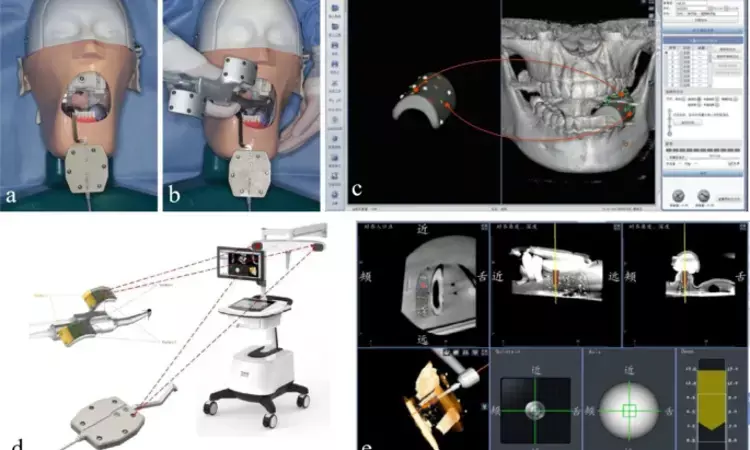- Home
- Medical news & Guidelines
- Anesthesiology
- Cardiology and CTVS
- Critical Care
- Dentistry
- Dermatology
- Diabetes and Endocrinology
- ENT
- Gastroenterology
- Medicine
- Nephrology
- Neurology
- Obstretics-Gynaecology
- Oncology
- Ophthalmology
- Orthopaedics
- Pediatrics-Neonatology
- Psychiatry
- Pulmonology
- Radiology
- Surgery
- Urology
- Laboratory Medicine
- Diet
- Nursing
- Paramedical
- Physiotherapy
- Health news
- Fact Check
- Bone Health Fact Check
- Brain Health Fact Check
- Cancer Related Fact Check
- Child Care Fact Check
- Dental and oral health fact check
- Diabetes and metabolic health fact check
- Diet and Nutrition Fact Check
- Eye and ENT Care Fact Check
- Fitness fact check
- Gut health fact check
- Heart health fact check
- Kidney health fact check
- Medical education fact check
- Men's health fact check
- Respiratory fact check
- Skin and hair care fact check
- Vaccine and Immunization fact check
- Women's health fact check
- AYUSH
- State News
- Andaman and Nicobar Islands
- Andhra Pradesh
- Arunachal Pradesh
- Assam
- Bihar
- Chandigarh
- Chattisgarh
- Dadra and Nagar Haveli
- Daman and Diu
- Delhi
- Goa
- Gujarat
- Haryana
- Himachal Pradesh
- Jammu & Kashmir
- Jharkhand
- Karnataka
- Kerala
- Ladakh
- Lakshadweep
- Madhya Pradesh
- Maharashtra
- Manipur
- Meghalaya
- Mizoram
- Nagaland
- Odisha
- Puducherry
- Punjab
- Rajasthan
- Sikkim
- Tamil Nadu
- Telangana
- Tripura
- Uttar Pradesh
- Uttrakhand
- West Bengal
- Medical Education
- Industry
Robot navigation clinically reliable method for implant placement

Robot navigation is a clinically reliable method for implant placement suggests a new study published in the Journal of Prosthetic Dentistry.
The systematic assessment of accuracy of robot-assisted implant surgery is lacking. The purpose of this systematic review and meta-analysis was to evaluate the accuracy of robot-assisted implant surgery and compare it with computer-aided implant surgery in partially and completely edentulous patients and human phantoms. The studies were selected from ScienceDirect, Web of science, Cochrane Library, PubMed, and CNKI databases. The risk of bias of the included studies was evaluated with the risk of bias in nonrandomized studies of interventions tool. The mean and standard deviation of global coronal, apical, and angular deviations of implants were the primary outcome. Meta-analysis was conducted to evaluate the accuracy of the robot-assisted implant surgery and compare it with computer-aided implant surgery in dental implantation (α=.05).
Results: Eleven in vitro studies with 809 implants and 10 clinical studies with 257 implants were included. For the in vitro studies, the mean global coronal, apical, and angular deviations of robot-assisted implant surgery were 0.7 mm (95% CI: 0.6 to 0.8), 0.8 mm (95% CI: 0.6 to 1.0), and 1.8 degrees (95%CI: 1.2 to 2.5), respectively. For the clinical studies, the average global coronal, apical, and angular deviations of robot-assisted implant surgery were 0.6 mm (95% CI: 0.5 to 0.8), 0.7 mm (95% CI: 0.6 to 0.8), and 1.6 degrees (95%CI: 1.1 to 2.0), respectively. For the in vitro studies, the robot-assisted implant surgery group showed significantly more decrease in global coronal deviation than the computer-assisted implant surgery group (P=.012). The robot-assisted implant surgery group offered smaller global apical deviation (P=.001) and angular deviation (P<.001) than the computer-assisted implant surgery group.Robot navigation is a clinically reliable method of implant placement. Significantly lower global coronal, apical, and angular deviations were observed for robot-assisted implant surgery compared with computer-assisted implant surgery in human phantoms.
Reference:
Yang J, Li H. Accuracy assessment of robot-assisted implant surgery in dentistry: A systematic review and meta-analysis. J Prosthet Dent. 2024 Jan 8:S0022-3913(23)00819-3. doi: 10.1016/j.prosdent.2023.12.003. Epub ahead of print. PMID: 38195255.
Dr. Shravani Dali has completed her BDS from Pravara institute of medical sciences, loni. Following which she extensively worked in the healthcare sector for 2+ years. She has been actively involved in writing blogs in field of health and wellness. Currently she is pursuing her Masters of public health-health administration from Tata institute of social sciences. She can be contacted at editorial@medicaldialogues.in.
Dr Kamal Kant Kohli-MBBS, DTCD- a chest specialist with more than 30 years of practice and a flair for writing clinical articles, Dr Kamal Kant Kohli joined Medical Dialogues as a Chief Editor of Medical News. Besides writing articles, as an editor, he proofreads and verifies all the medical content published on Medical Dialogues including those coming from journals, studies,medical conferences,guidelines etc. Email: drkohli@medicaldialogues.in. Contact no. 011-43720751


